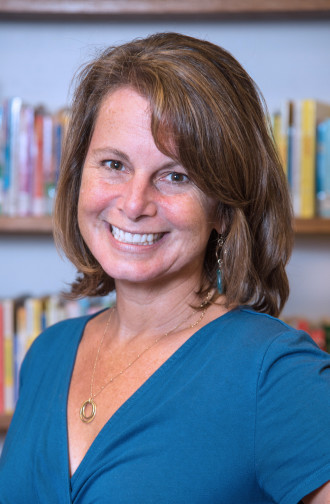The Asheville City Schools Foundation was founded in 1988 to support strong public schools in the city. The nonprofit makes grants to schools and teachers, funds artists in residence in classrooms, awards college scholarships to students and provides after-school programming through its In Real Life program at Asheville Middle School.
Five years ago, says Executive Director Kate Pett, the nonprofit looked at its work through the lens of racial equity — and discovered problems. “We spent two years studying our own culture,” she says, adding, “It was a transformative process.” People of color, the organization found, were insufficiently represented on its board of directors; in response, the foundation undertook extensive racial equity training developed by the Asheville-based Center for Participatory Change and OpenSource Leadership Strategies in Durham.
The extent of the foundation’s work in this area is unique, says Pett. “The ACSF is maybe the only local education fund in the state that is engaging very specifically in racial equity work.” All grant applications for teachers and teaching artists must include a racial equity component, notes Miranda Musiker, the foundation’s grants and scholarships manager.
The group also funds a schoolwide equity initiative at Claxton Elementary School. Now in its third full year, the program is focusing on what the Claxton-based equity team has defined as an “opportunity gap” for students of color: chances to be leaders in extracurricular activities that promote self-esteem, resilience and engagement. The foundation’s support for addressing issues like transportation, says Pett, is helping more minority students participate in activities like the safety patrol, school plays and after-school clubs.
Her group, she emphasizes, works closely with district staff, and there are many synergies. “Everybody has really been working on these issues together,” says Pett, and they’ve made measurable progress in behavior management.
Data and accountability are critical in education generally, stresses Pett, but that’s particularly true “when we’re talking about vulnerable, underserved children. We have to rely on data to help tell the story because obviously their voices aren’t entered into the room.”
Nonetheless, she says, numbers don’t paint the whole picture of student and school success. Current state formulas, Pett explains, are weighted heavily to favor performance on end-of-grade tests over student growth. “So if you’re a teacher who’s inherited a group of students who might have higher levels of poverty or trauma or learning needs, you might have tremendous growth. You might do heroic work, but your students are still unlikely to be proficient at the end of that year. And so you might be rated as a poor teacher in a failing school.”
Once schools are labeled as failing, she continues, “That might translate into parents with privilege — white parents — choosing to send their children to a different school that had a different grade, concentrating poverty and disadvantage in one school and benefiting another.”
Besides continuing to fund its current programs and initiatives, the foundation also has a wish list of programs it’s eager to launch if additional money becomes available, notes Pett. She’d love to create a program that would provide “a long pipeline of support” for elementary-age children, with the eventual goal of involving more diverse students in nonathletic activities such as band or the debate team, which “could help them experience success in school and get to college.”
Pett would also like to expand summer opportunities for students, which “the schools just can’t do by themselves because that slice of funding just keeps getting cut.”
Finally, she says, “It would be great to attract and retain teachers of color. But in general, we need to think about innovative ways to attract and retain excellent teachers who really want to engage in racial equity issues, which includes white teachers.”
At the same time, however, Pett cautions against expecting racial equity work to quickly lead to gains in test results. “When we talk about the achievement gap, it’s just one tiny slice — and one which many educators disagree with the validity of. We should also measure some other things, like discipline referrals, because we can address that disparity. That is within our control,” she points out. “Can we necessarily overcome all the effects of poverty and close the achievement gap next year? No.”



Before you comment
The comments section is here to provide a platform for civil dialogue on the issues we face together as a local community. Xpress is committed to offering this platform for all voices, but when the tone of the discussion gets nasty or strays off topic, we believe many people choose not to participate. Xpress editors are determined to moderate comments to ensure a constructive interchange is maintained. All comments judged not to be in keeping with the spirit of civil discourse will be removed and repeat violators will be banned. See here for our terms of service. Thank you for being part of this effort to promote respectful discussion.